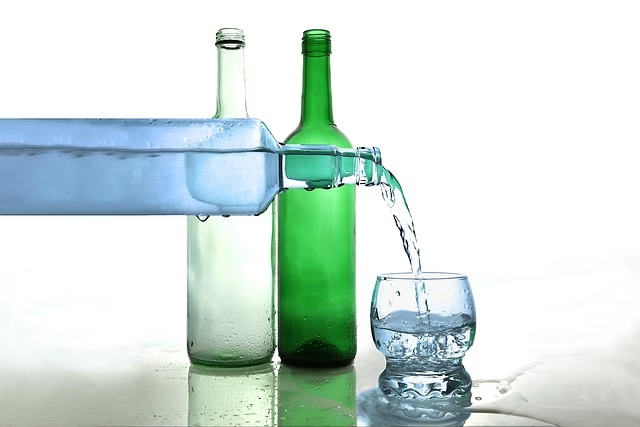With summer temperatures soaring, proper hydration becomes more than just a health recommendation—it’s a necessity. Many people underestimate how quickly fluids deplete in the heat, leading to fatigue, headaches, and even serious health risks. Fortunately, with the right hydration tips for summer, you can stay energized and safe all season long.
This guide covers science-backed strategies, including:
✔ How to calculate your personalized water needs
✔ Natural alternatives to sugary sports drinks
✔ Key signs of dehydration you might miss
✔ Hydration-boosting foods to incorporate daily
Whether you’re an athlete, parent, or simply want to feel your best, these hydration tips for summer will keep you cool and refreshed.
Hydration Tips for Summer: Why They Matter
Staying hydrated goes beyond quenching thirst—it impacts nearly every bodily function. During summer, higher temperatures and increased outdoor activity accelerate fluid loss through sweat. As a result, dehydration can sneak up quickly, causing:
- Reduced concentration and slower reaction times
- Muscle cramps and dizziness
- Increased risk of heat exhaustion
Interestingly, research shows that mild dehydration (just 1-2% fluid loss) can impair cognitive performance. That’s why following these hydration tips for summer is crucial for both physical and mental well-being.
Hydration Tips for Summer: Understanding the Risks
The combination of high temperatures and outdoor activities makes following hydration tips for summer more critical than ever. When the body loses fluids through sweat:
- Blood volume decreases, forcing the heart to work harder
- Cognitive function can decline significantly
- Risk of heat-related illnesses rises dramatically
Research shows that most heat-related health issues stem from inadequate hydration. That’s why these hydration tips for summer aren’t just suggestions – they’re essential health practices.
Hydration Tips for Summer: 15 Essential Strategies
Hydration Tips for Summer #1: Calculate Your Personal Water Needs
Rather than following the generic “8 glasses a day” rule, tailor your hydration to your body. A simple formula:
Divide your weight (in pounds) by 2 = Daily ounces needed
For example, a 160-pound person requires 80 oz minimum. However, this baseline increases with exercise, heat, and humidity.
Hydration Tips for Summer #2: Drink Before You Feel Thirsty
Thirst signals often lag behind actual fluid needs. To stay ahead:
- Begin your day with 16 oz of water
- Set hourly reminders if you’re outdoors
- Choose a reusable bottle with time markers
3. Opt for Natural Electrolyte Sources
While sports drinks are popular, many contain excessive sugar. Instead, try these alternatives:
- Coconut water: Packed with potassium
- Homemade lemonade: Add a pinch of sea salt
- Herbal iced teas: Mint or hibiscus for variety
4. Incorporate Hydrating Foods
Certain fruits and vegetables provide both water and essential nutrients:
- Cucumber (96% water): Supports skin hydration
- Watermelon (92% water): Contains lycopene for sun protection
- Bell peppers (92% water): Rich in vitamin C
Try a cooling watermelon-feta salad for a hydrating meal.
5. Limit Dehydrating Beverages
Some drinks counteract hydration efforts:
- Alcohol: Increases urine output
- Caffeinated drinks: Consume in moderation
- Sugary sodas: Spike blood sugar, worsening thirst
If you indulge, pair each serving with equal water.
6. Recognize Hidden Dehydration Signs
Beyond thirst, watch for:
- Dark yellow urine (Aim for pale straw color)
- Dry lips and skin
- Unusual fatigue or irritability
For a quick check, press a fingernail—slow capillary refill indicates dehydration.
Targeted Hydration Strategies
For Outdoor Enthusiasts
- Freeze water bottles overnight for cold sips all day
- Wear moisture-wicking clothing to reduce sweat loss
For Parents
- Use colorful ice cubes (with fruit pieces) to encourage kids
- Pack hydrating snacks like grapes or celery sticks
For Older Adults
- Set phone reminders (thirst signals weaken with age)
- Enjoy herbal teas or broths for variety
Debunking Hydration Myths:
❌ “Clear urine means optimal hydration” → Actually, pale yellow is ideal (clear may indicate overhydration).
❌ “You can’t drink too much water” → Excessive intake dilutes sodium levels, causing hyponatremia.
Final Thoughts: Hydrate Smarter This Summer
Staying hydrated in summer doesn’t require drastic changes—just consistent, mindful habits. Start with two or three of these hydration tips for summer, such as carrying a reusable bottle or adding more water-rich foods. Over time, these small steps will keep you feeling refreshed and healthy.

